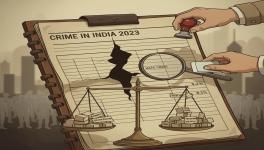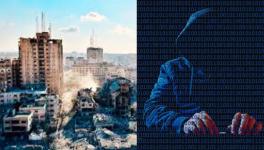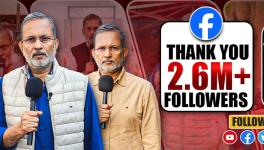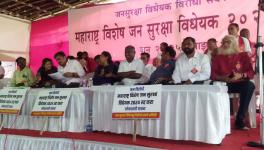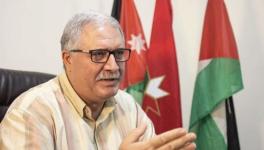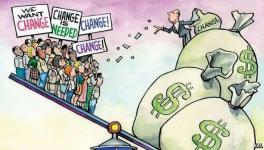Space for Civil Society Groups, Fundamental Freedoms Shrank Further in Modi’s Second Term: Report
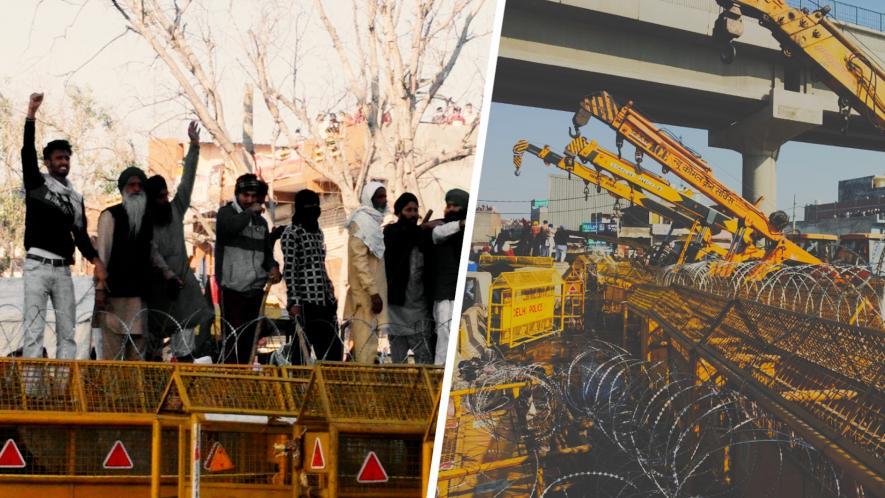
Protesting farmers stopped at Delhi's border (File Photo)
New Delhi: As Prime Minister Narendra Modi and his Bharatiya Janata Party seek a third term at the Centre, a report by Civicus, a global civil society alliance, says it found that the space for fundamental freedoms had further shrunk during Modi 2.0 government. The Civicus Monitor has, in fact, ranked fundamental freedoms in India as ‘repressed’.
The CIVICUS: World Alliance for Citizen Participation is a global alliance of civil society organisations and activists dedicated to strengthening citizen action and civil society worldwide. It has over 15,000 members in 175 countries.
The report, India – Fundamental Freedoms Deteriorate Further in Modi’s Second Term, said the Indian government used an array of restrictive laws and policies to silence dissent by targeting critics including civil society groups and human rights defenders.
Among these, it noted that the Indian government had increasingly used FCRA (Foreign Currency Regulation Act) to restrict foreign funding to civil society groups.
“According to a September 2023 report from Amnesty International, in the last 10 years, more than 20,600 CSOs have had their FCRA licences cancelled, with almost 6,000 of these cancellations occurring since the beginning of 2022,” the report said, adding that “the law (FCRA) and its amendments have been used to target and harass civil society and human rights defenders, who very often express criticism and dissent towards the government.”
Referring to raids and searches on civil society organisations, it noted that “The Indian government has also brazenly used its federal law enforcement agencies such as the Central Bureau of Investigation (CBI), Enforcement Directorate (ED) and Income Tax Department to harass CSOs and human rights defenders and criminalise them for their human rights work and for speaking out on human rights issues.”
Among the organisations targeted are Lawyers’ Collective, People’s Watch, Oxfam India, Centre for Policy Research, Amnesty, Oxfam, Greenpeace etc.
On human rights defenders, the report pointed how those critical of the government were implicated and jailed in “politically motivated cases under the Unlawful Activities Prevention Act (UAPA), a draconian anti-terror law,”such as 16 activists in the Bhima Koregaon case, former JNU student Umar Khalid, student activist Gulfisha Fatima and several activists in Kashmir, such as Khurram Parvez, award-winning photojournalist Masrat Zahra, journalist Peerzada Ashiq among others,
It also mentions how India, during Modi’s second term, also witnessed an increase in attacks and restrictions against independent media and journalists, among these are the searches on The Wire, the targeting of NewsClick with raids, searches and seizures by various government agencies, as also slapping of criminal charges, including sedition, on several journalists covering the farmers’ protest in 2021, including for tweeting, and the arrest of Siddique Kappan, who was arrested in 2020 in Uttar Pradesh while on his way to cover a case of alleged gang-rape and murder of a Dalit girl. He was released on bail after two years.
“The increasing use of restrictive laws during Prime Minister Modi’s second term to crackdown on civil society, human rights defenders and independent media, highlights a government that has become intolerable of any form of dissent. These laws have become tools for judicial harassment and are incompatible with India’s international human rights obligations as well as India’s Constitution”, said Marianna Belalba Barreto, Research Lead for the CIVICUS Monitor, in the report.
The Civicus report has made several suggestions that include the repeal or amendments to FCRA “so that it does not violate India’s obligations to protect freedom of association, which includes the ability of CSOs to access foreign funding”, adopt best practices on freedom of peaceful assembly, as put forward by the 2012 report of the UN Special Rapporteur on the rights to freedom of peaceful assembly and of association, ensure freedom of expression and media freedom by all bringing national legislation into line with international standards and ensure that journalists and writers may work freely and without fear of reprisals for expressing critical opinions or covering topics that the government may deem sensitive, review and amend restrictive laws, particularly the UAPA and sedition provisions among others.
Get the latest reports & analysis with people's perspective on Protests, movements & deep analytical videos, discussions of the current affairs in your Telegram app. Subscribe to NewsClick's Telegram channel & get Real-Time updates on stories, as they get published on our website.










